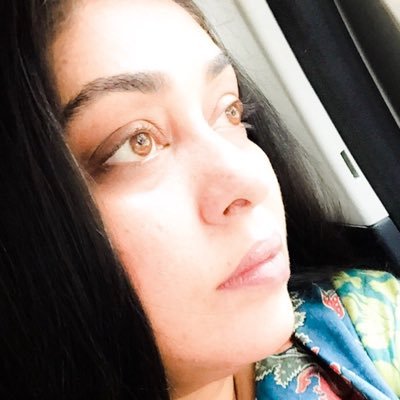By Arundhuti Banerjee
Mumbai– He is an iconic poet, lyricist and filmmaker known for films like “Maachis” and “Aandhi”. She is a writer and film director known for making her debut with a subject like surrogacy in “Filhaal” 15 years ago. The approach and treatment of storytelling are what set father Gulzar and daughter Meghna creatively poles apart, but the latter says she has picked up the art of expressing thoughts in a few words from him.

Asked about the influence of her father’s creativity in her life, Meghna told IANS: “When it comes to filmmaking, our cinema is very different, our storytelling is different. But yes, he has influenced me a lot personally. I think that is to do with the father-daughter bonding and is a genetic thing.
“I know that consciously that I have taken one thing from him and that is to keep things simple. I have learnt from daddy to be economical with words… If I can use three words to express something, I shouldn’t be using seven words for that.”
Gulzar has written the lyrics for her new directorial venture “Raazi”, which has also marked the first time that Meghna has collaborated with the music director trio Shankar-Eshaan-Loy.
“Those song sessions were magical. This is the first time I have worked with Shankar-Ehsaan-Loy and I am so impressed to see how nicely they are in sync with each other. They do not discuss too much. They play their instruments, and do things in their way separately, wearing their headphones.
“But when it is coming to the sound engineering, it sounds as if it is one. It’s magical to see that. They are so perfect that I have got my every song within five hours. Four of them (including Gulzar) sitting together, writing lyrics, composing the tune, preparing the song and it was ready,” Meghna said.
“Raazi”, which released on Friday, is based on the book “Calling Sehmat”, and is set in 1971, the year when India and Pakistan fought a war. Alia Bhatt plays a young Kashmiri girl who gets married to a Pakistani Army officer — essayed by Vicky Kaushal — and becomes an undercover agent to protect her own country.
Meghna said she felt the need of establishing the socio-political context as a part of the narration to give the audience a clear picture.
“I think putting the historical context in the film was very important to amplify the sense of urgency that leads to a father to send his daughter to the neighbouring country, knowing that he is putting her in a risk. I think in the book, the story was pretty intimate. When I am bringing the story to the audience, putting the backgrounder was needed to give the clarity of the situation. Our story goes on till the 1971 war starts.”
As the filmmaker did extensive research work on the subject before writing the script, giving an insight into it, Meghna said: “It was a very interesting situation where East Pakistan wanted liberation to become Bangladesh, India was there in that dynamic and there was West Pakistan that wanted to control over east Pakistan, stopping to form Bangladesh and damage India in some way.”
“For nine months, the situation was brewing before the war broke out finally. But nothing was happening actively. Both India and Pakistan were waiting for the other to take the first step,” added Meghna.
This is not the first time that Meghna is directing a film based on a real-life inspired account. Her last release “Talvar” was based on the Aarushi Talwar Noida double murder case that took place in 2008. While the film received a lot of praise for its performance and storytelling, it faced some criticism for not offering anything new beyond what was available in the public domain.
So, is she ready to take criticism this time as well?
“If you are not open to people’s perspective and opinion, I think you have no business of putting your own perspective. That’s what I believe. I should be able to take criticism. The first question I faced after the trailer of ‘Talvar’ released was, ‘The incident happened in public eyes, we know the case, what new could you offer in the film?’
“But I believed that showing the series of incidents sequentially, juxtaposing each other, will give a clarity of the situation. After watching the film, some people changed their viewpoint, some didn’t, but I did what I intended to do. I thought the incident of Talwar murder case that happened in our society shook the foundation of what we know as family. I wanted to tell that story.
“Similarly, once the film ‘Raazi’ releases and people watch it, I will welcome whatever criticism comes my way. I firmly believe that the story was compelling enough to tell.” (IANS)












